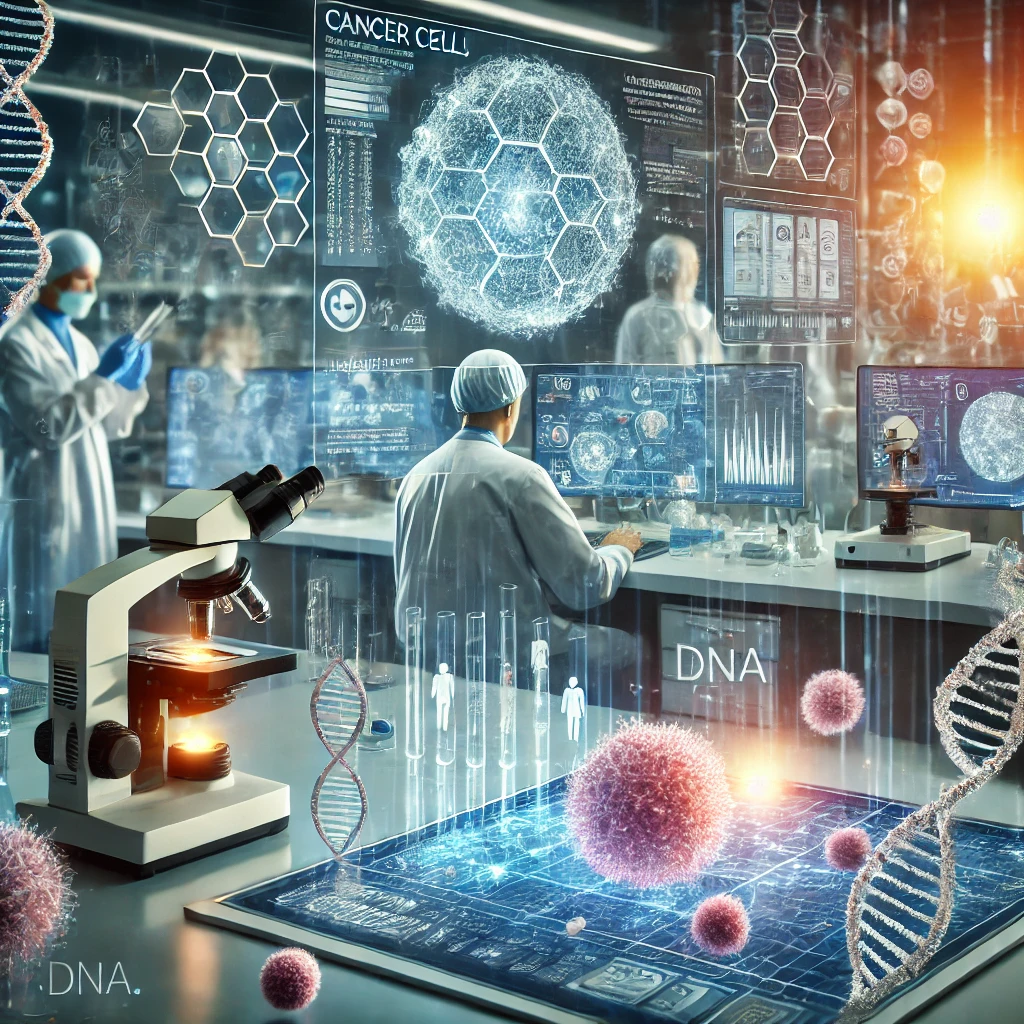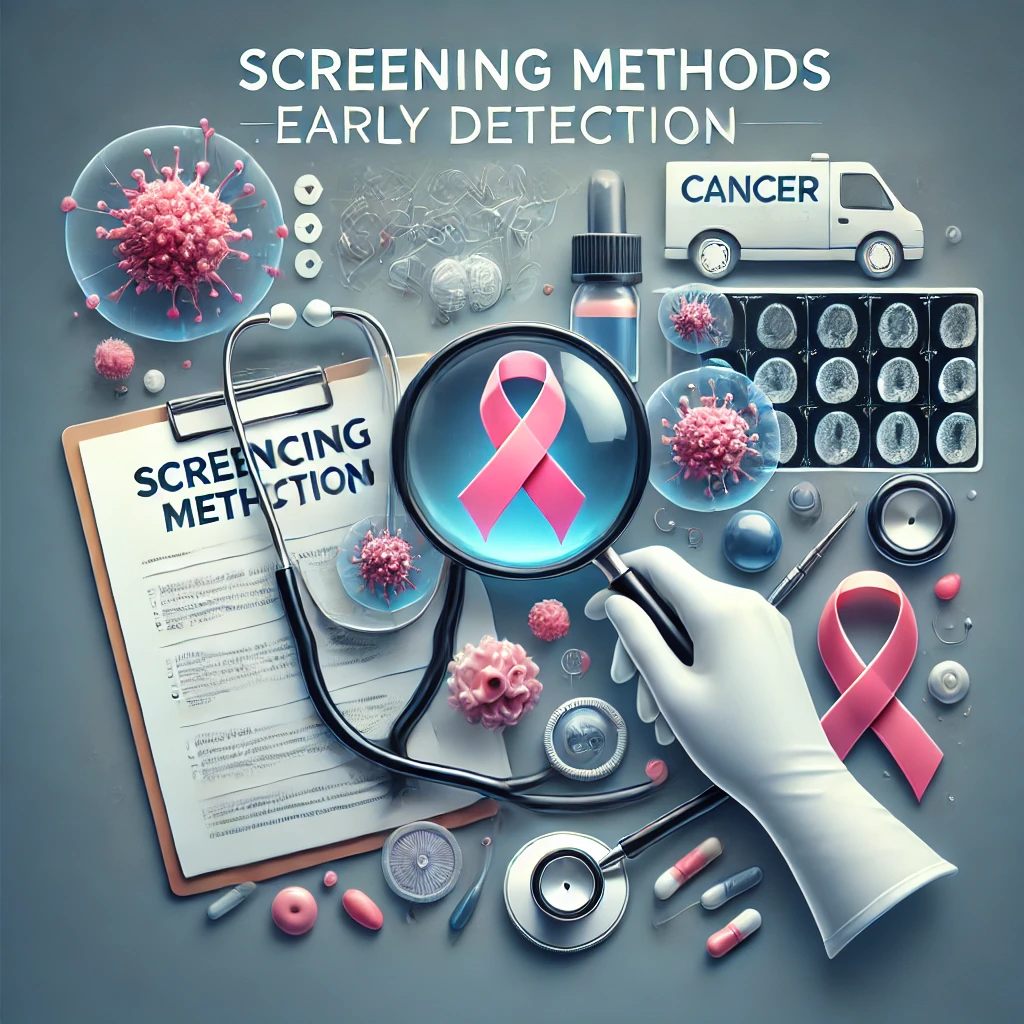
Innovations in Cancer Research: Exploring the ..
Nov 19 - 2024

By Dr. Julie Pratibha Singh, Scientific Advisor, Health29
Introduction
Cancer is a formidable disease, but early detection can significantly improve treatment outcomes and survival rates. Detecting cancer in its earliest stages allows for more effective and less invasive treatment, potentially saving lives. At Health29, we aim to spread awareness about the importance of early cancer detection and provide easy access to advanced diagnostic tools and expert advice. In this article, we’ll explore how early detection can change the course of cancer treatment, along with insights from Dr. Babita Bansal Singh, Senior Consultant, Radiation Oncologist at Andromeda Cancer Hospital, Haryana and Dr. Raman Narang, Senior Consultant, Medical Oncology, Andromeda Cancer Hospital, Haryana two renowned oncologist I recently had the pleasure of interviewing on behalf of Health29.
Why Early Detection Matters
Early detection is key to improving cancer outcomes. According to Dr. Babita “Cancers detected early are often localized and confined to the organ of origin, which means they are easier to treat and are associated with better survival rates. Early-stage cancers often require less aggressive treatment, and patients can avoid the harsh side effects associated with advanced-stage cancer therapies.”
For instance, breast cancer detected in stage 1 has a 5-year survival rate of nearly 99%, but this drops significantly as the cancer progresses. Similarly, early-stage lung, colorectal, and prostate cancers have much better outcomes when caught early.
“Prevention and early detection go hand in hand,” Dr. Raman explained, “and it’s vital for individuals, especially those with a family history of cancer or other risk factors, to stay vigilant with regular screenings.”
Common Screening Methods
Several screening tools are available today that can catch cancers before they cause noticeable symptoms. Below are some of the most effective screening methods for early cancer detection:
Innovations in Cancer Screening
As medical technology evolves, more advanced screening methods are becoming available. Dr. Raman shared insights on some of the latest developments in the field: “We’re seeing great strides in liquid biopsies, which allow us to detect cancer-related genetic mutations in a simple blood test. This technology holds immense potential for early detection, particularly in cancers that are harder to screen for, such as pancreatic or ovarian cancer.”
In addition to this, more widespread use of imaging techniques like MRI, PET scans, and genetic testing is enabling doctors to detect cancers earlier and personalize treatment strategies based on a patient’s genetic profile.
What Can You Do?
As Dr. Babita emphasized during our conversation, awareness and proactive action are critical in the fight against cancer. “Patients need to take charge of their health. Regular screenings, understanding personal risk factors, and staying informed are key to catching cancer early.”
Here’s what you can do to ensure early detection:
Health29’s Role in Early Cancer Detection
At Health29, we are committed to ensuring that every patient has access to the best diagnostic tools and expert guidance. Whether you’re seeking screenings, a second opinion, or need help navigating the complexities of cancer care, Health29 connects you with the best experts and accredited diagnostic centres at affordable prices. Our platform is designed to support patients at every step of their journey, from early detection to treatment and beyond.
Dr. Raman reminds us that “early detection is a powerful tool in the fight against cancer. By staying vigilant and proactive, we can catch cancer in its earliest stages and significantly improve outcomes.”
Acknowledgment
We extend our sincere gratitude to Dr. Babita Bansal Singh,Senior Consultant, Radiation Oncologist, Andromeda Cancer Hospital, Sonipat, Haryana and Dr. Raman Narang, Senior Consultant, Medical Oncology, Andromeda Cancer Hospital, Sonipat, Haryana, an esteemed oncologist and expert in cancer care, for providing invaluable insights and advice for this article. Dr. Babita Bansal Singh and Dr. Raman Narang’s dedication to advancing cancer research and treatment has not only enhanced our understanding of early detection but also continues to inspire us in our mission to provide accessible, patient-focused cancer care at Health29. We appreciate Dr. Babita and Dr. Raman’s time and expertise in helping us spread awareness and promote early cancer detection for better health outcomes.
Email us support@health29.in,
Copyright © 2022-24 Health29. All Rights Reserved. Design & Developed By : Innovative Solution Technologies | ISOLS Group